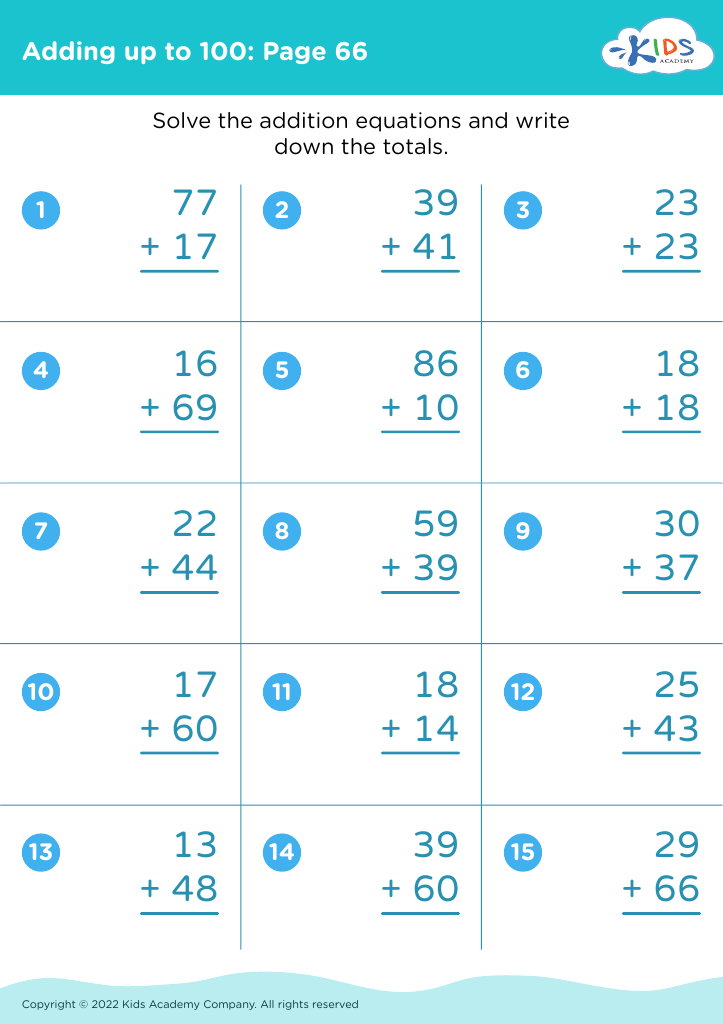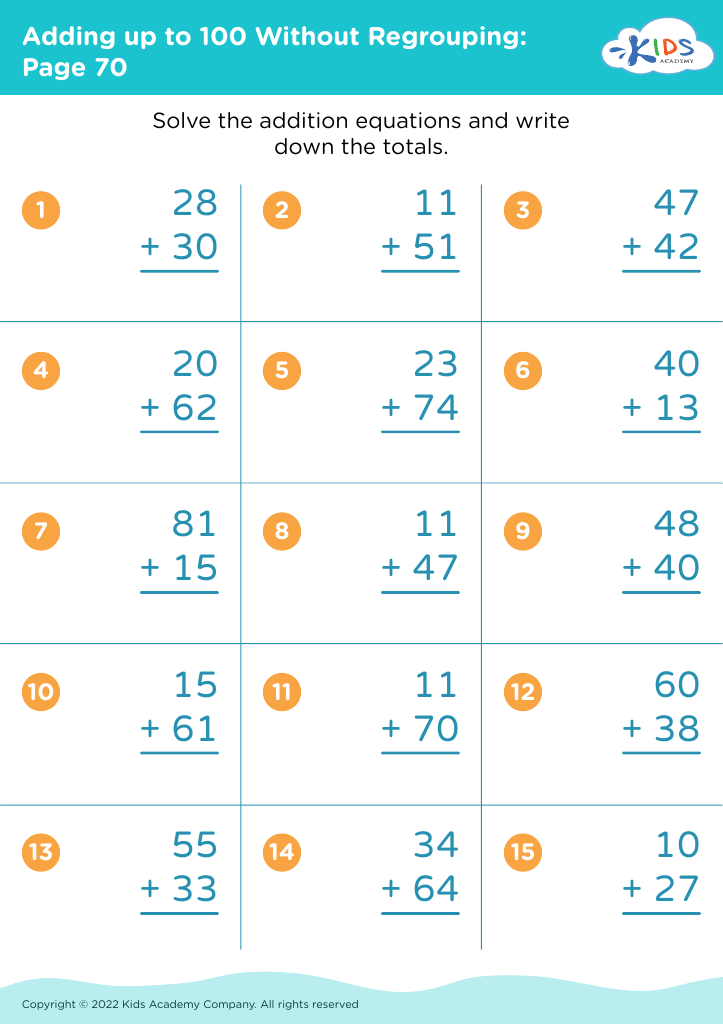Enhance problem-solving skills Adding up to 100 Worksheets for 8-Year-Olds
3 filtered results
-
From - To
Enhance your child's problem-solving skills with our "Adding Up to 100 Worksheets" designed specifically for 8-year-olds! These engaging worksheets provide a fun yet educational approach to mastering addition. Each worksheet challenges young learners to think critically while developing their ability to solve problems efficiently. With a variety of interactive activities, your child will gain confidence in their math skills and improve their logical reasoning abilities. Perfect for home or classroom use, these resources will help reinforce essential math concepts while encouraging a love for learning. Empower your child today with our comprehensive collection of addition worksheets!
Enhancing problem-solving skills, particularly through activities like "Adding up to 100," is crucial for 8-year-olds' development, and here’s why parents and teachers should care.
First, problem-solving is a fundamental cognitive skill that fosters critical thinking. Engaging children in activities that require reaching a sum of 100 encourages them to logically assess quantities, recognize patterns, and make strategic decisions. These skills not only support math proficiency but also translate into everyday life scenarios, enhancing their independence and ability to evaluate situations effectively.
Furthermore, collaborative problem-solving activities promote social skills. When children work together to achieve a common goal, they learn communication, negotiation, and teamwork, which are vital for personal and academic success.
Moreover, these activities instill a growth mindset by helping children learn that persistence in solving challenges leads to success. As they navigate through variations and complexities in reaching 100, they develop resilience and confidence.
In an age where mathematical fluency is increasingly linked to future opportunities, prioritizing problem-solving from an early age equips children with the necessary skills to face academic challenges enthusiastically. Ultimately, fostering these skills creates a strong foundation for their educational journeys and lifelong learning.










%20(1).jpg)










